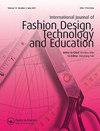基于顾客的快闪店股权与消费者购物行为
IF 2.2
Q3 BUSINESS
International Journal of Fashion Design, Technology and Education
Pub Date : 2021-12-09
DOI:10.1080/17543266.2021.2013959
引用次数: 1
摘要
摘要本研究探讨了公司的线下和线上服务质量如何影响以顾客为基础的快闪店权益,进而影响消费者在快闪店购物时支付溢价的意愿和购买意愿。本研究采用了Aaker的[1991]。管理品牌资产:将品牌的价值资本化。纽约:FreePress)品牌资产模型为概念框架的研究。从探索性因素分析中,我们发现了三个维度:意识/关联、感知质量和忠诚度。研究结果表明,线下服务质量是影响快闪店股权的重要决定因素。在本研究确定的快闪店权益的三个构念中,意识/联想和忠诚度是顾客愿意支付溢价的显著决定因素。此外,快闪店的认知/联想和感知质量是影响购买意愿的重要因素。本文章由计算机程序翻译,如有差异,请以英文原文为准。
Customer-based pop-up store equity and consumer shopping behavior
ABSTRACT This study explores how a company's offline and online service quality affects customer-based pop-up store equity, which in turn influences consumers’ willingness to pay a price premium and consumers’ purchase intention when shopping at a pop-up retail store. This study utilized Aaker's ([1991]. Managing brand equity: Capitalizing on the value of a brand name. New York: FreePress) brand equity model as the conceptual framework of the study. From the exploratory factor analysis, three dimensions emerged: awareness/association, perceived quality, and loyalty. The result of this research showed that offline service quality was a significant determinant that influences pop-up store equity. Among the three constructs identified as pop-up store equity in this study, awareness/association and loyalty were the significant determining factors for the customers’ willingness to pay the price premium. Also, awareness/association and perceived quality of pop-up stores were the significant factors that influence purchase intention.
求助全文
通过发布文献求助,成功后即可免费获取论文全文。
去求助
来源期刊

International Journal of Fashion Design, Technology and Education
Arts and Humanities-Visual Arts and Performing Arts
CiteScore
3.10
自引率
0.00%
发文量
36
 求助内容:
求助内容: 应助结果提醒方式:
应助结果提醒方式:


